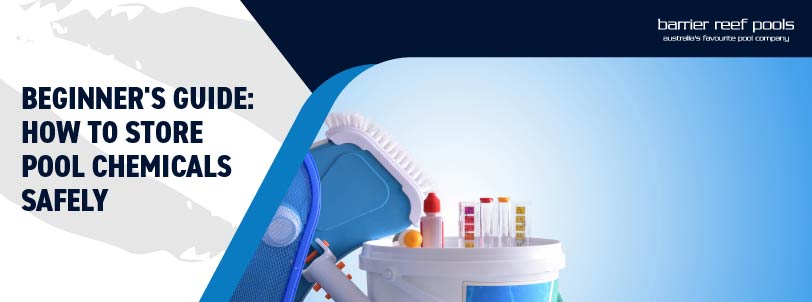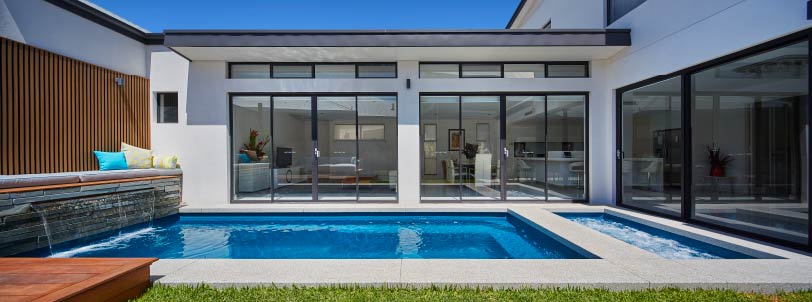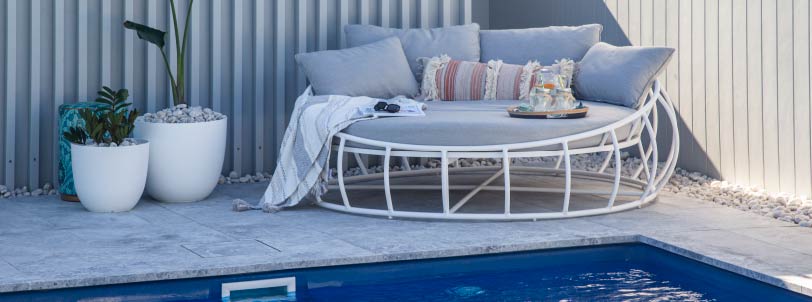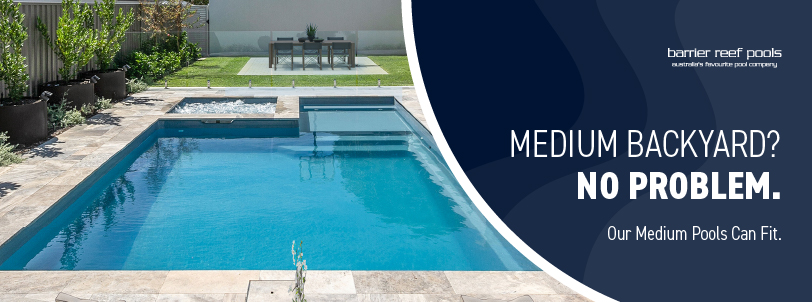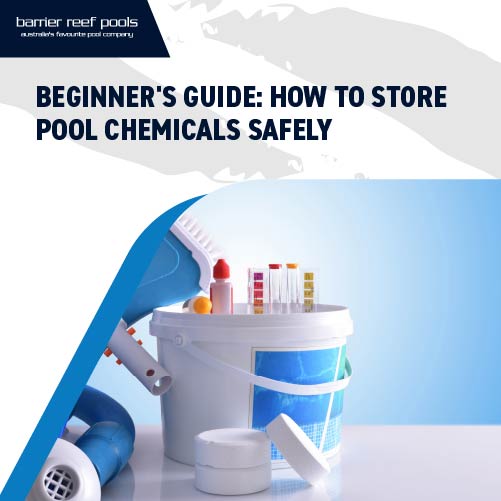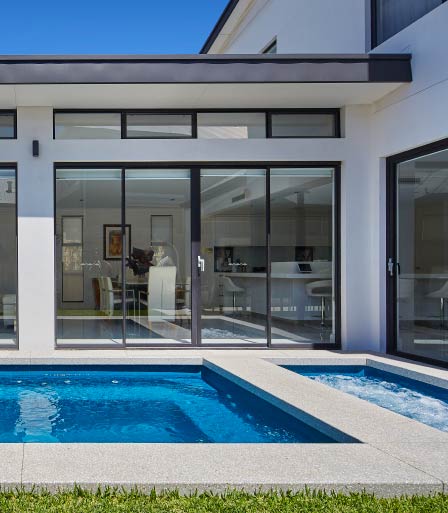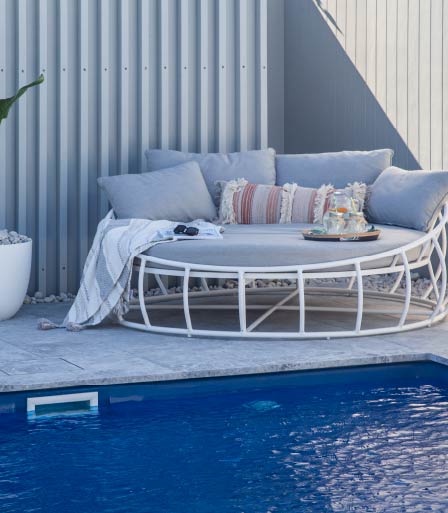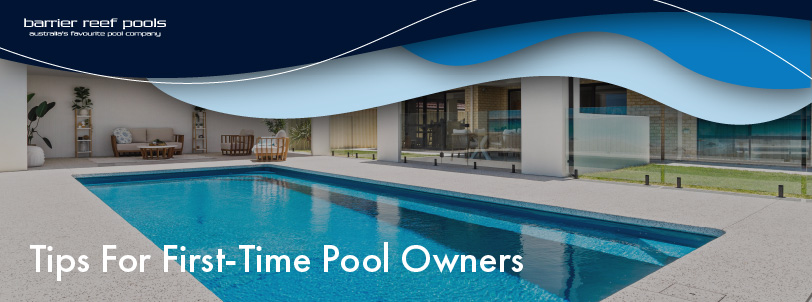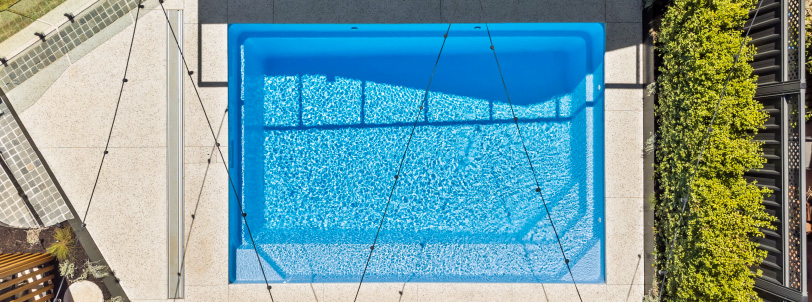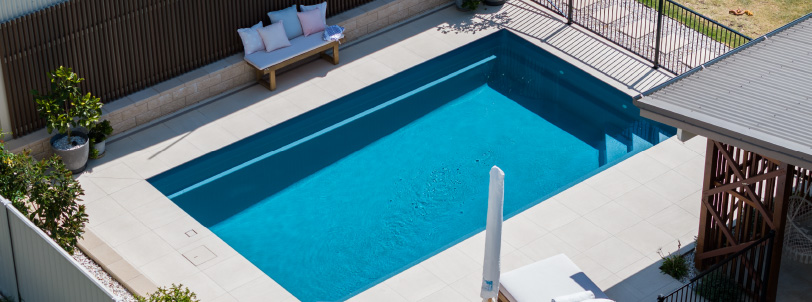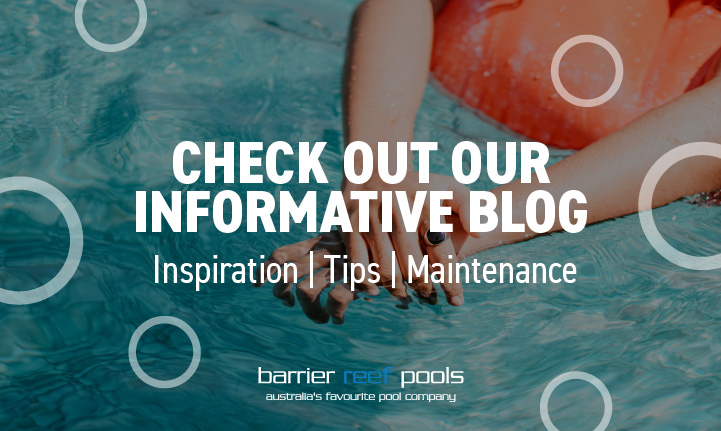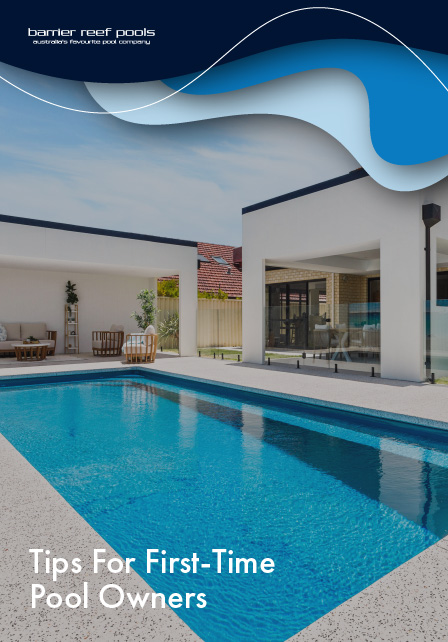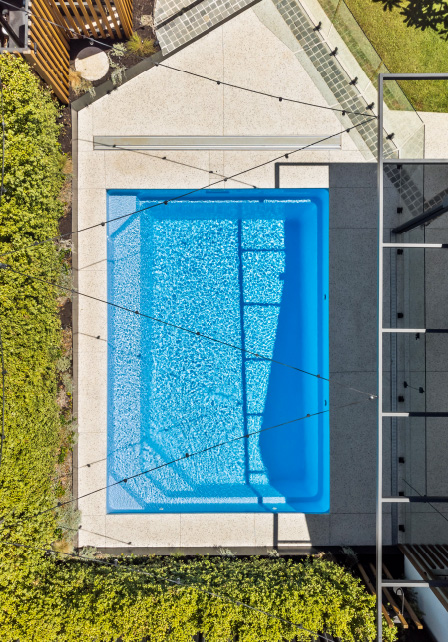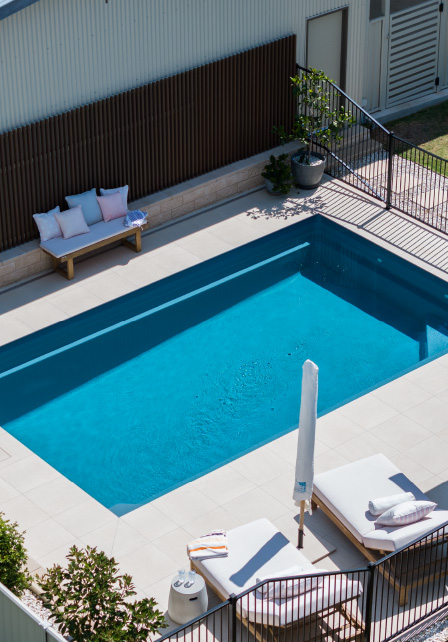Why Every Aussie Family Needs A Fibreglass Pool: Fun, Fitness & Family Time
Australia, with its abundant sunshine, warm climate, and outdoor lifestyle, is the perfect environment to enjoy a backyard pool. While there are several types of pools to choose from, fibreglass pools have become increasingly popular among Aussie families for a range of compelling reasons. From offering fun-filled moments and opportunities for fitness to creating an environment that fosters family time, fibreglass pools provide immense value to any home. In this article, we explore why every Aussie family needs a fibreglass pool, highlighting the benefits it brings in terms of enjoyment, health, and togetherness


1. Fun for All Ages
A fibreglass pool is a gateway to endless hours of fun for everyone in the family. Whether you have young children or teenagers, the smooth, non-porous surface of fibreglass pools makes them a safe and enjoyable place to swim. These pools can be designed in a variety of shapes, sizes, and depths, meaning you can tailor the pool to suit your family’s needs.
For little ones, shallow entry pools with gentle slopes provide a safe and easy space for paddling and playing. Older kids can enjoy diving, swimming laps, or having fun with pool toys. And let’s not forget the adults – a fibreglass pool offers a tranquil retreat, perfect for lounging, relaxing, and unwinding after a long day.
2. Fitness at Your Fingertips
A fibreglass pool is not only a space for relaxation and enjoyment; it is also an excellent tool for improving fitness. Swimming is a low-impact exercise that is suitable for all fitness levels, making it ideal for both adults and children. Whether you’re looking to improve cardiovascular health, tone muscles, or boost overall strength, swimming is one of the most effective full-body workouts.
For parents looking to stay active, a daily swim is a great way to relieve stress and maintain physical fitness without putting undue strain on joints. This is particularly beneficial for people with arthritis or mobility challenges. The buoyancy of the water helps reduce impact, making it a safe exercise for those with limited mobility or injuries.
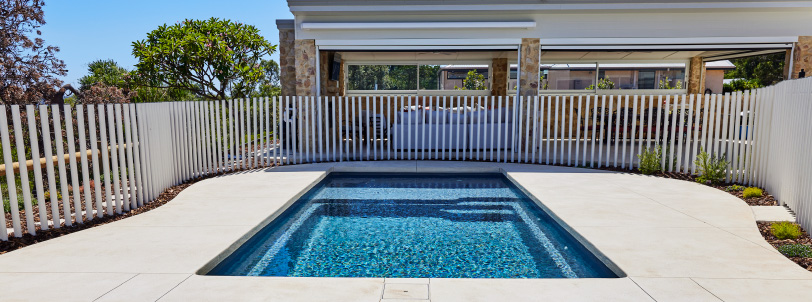
3. Quality Family Time
In the hustle and bustle of modern life, finding time to spend together as a family can be difficult. Between work, school, extracurricular activities, and social events, it can feel like there’s never enough time to bond. A fibreglass pool provides an excellent space for families to connect and spend quality time together, away from the distractions of screens and technology.
Nothing beats the joy of having your family all together around the pool. Whether you’re splashing around, playing games, or simply enjoying each other’s company, a pool offers a relaxed and enjoyable setting for bonding. It’s a space where you can be yourselves, let go of stress, and create lasting memories.
The pool can also be a space for family traditions, whether it’s a weekly family swim or an annual summer pool party. The ease of having the pool right in your backyard means that you can spend more time together without the hassle of traveling to a public pool or beach.
4. Easy Maintenance
One of the standout benefits of fibreglass pools is their low maintenance compared to other pool types. Unlike concrete or vinyl-lined pools, fibreglass pools have a smooth surface that resists algae growth and debris buildup, making cleaning much easier. The durable surface also means there’s less need for ongoing repairs or resurfacing, saving you time and money in the long run.
Fibreglass pools also require fewer chemicals to maintain water clarity, as their non-porous surface helps prevent the absorption of dirt and bacteria. This means less time spent on scrubbing and more time enjoying the pool with your family.
A reliable filtration system and regular maintenance checks will keep your fibreglass pool in top condition year-round, allowing you to enjoy it without the constant upkeep.
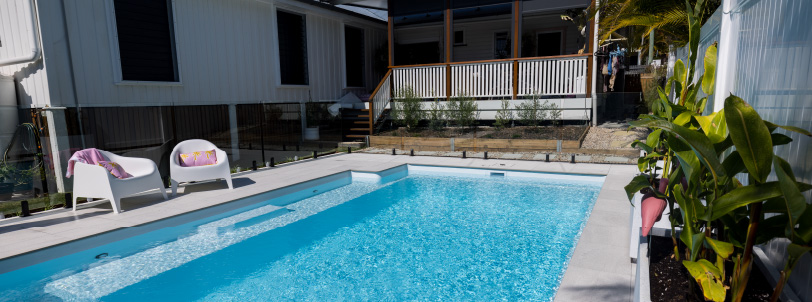
5. Cost-Effective Investment
When it comes to installing a pool, cost is often a major factor in decision-making. While fibreglass pools may have a higher upfront cost than inflatable or above-ground pools, they offer greater long-term value. Their durability and low maintenance costs ensure that your investment will pay off over time. Additionally, fibreglass pools generally have a quicker installation process compared to concrete pools, saving you both time and labour costs.
Furthermore, fibreglass pools often increase the value of your property. A well-maintained pool can enhance the aesthetic appeal of your home and make it more attractive to potential buyers, should you decide to sell in the future. A fibreglass pool is a wise investment that not only provides immediate enjoyment but also contributes to the long-term value of your home.
6. Sustainability and Environmental Benefits
A growing number of Aussie families are becoming more environmentally conscious, and the benefits of fibreglass pools align with these values. Fibreglass pools are energy efficient and can be designed to incorporate eco-friendly features, such as solar heating and efficient filtration systems. These sustainable features help reduce your carbon footprint and minimise energy consumption, making fibreglass pools a greener choice.
The materials used in the construction of fibreglass pools are also recyclable, further enhancing their environmental appeal. By choosing a fibreglass pool, you’re not only investing in your family’s happiness but also supporting a more sustainable future.
7. A Stylish Addition to Your Home
Beyond their functionality, fibreglass pools are incredibly stylish and can complement any backyard. Available in a variety of shapes, sizes, and colours, these pools can be customised to suit your aesthetic preferences and the overall look of your home. Whether you prefer a sleek, modern design or a more natural, organic shape that blends into the landscape, there’s a fibreglass pool option for every family.
The ability to personalise your pool area with landscaping, decking, and lighting options further enhances the overall appeal of your backyard, turning it into a private paradise for your family to enjoy.
Conclusion
A fibreglass pool offers a combination of fun, fitness, and family time that can transform the way you enjoy your home. It provides endless opportunities for recreation, encourages physical activity, fosters family bonding, and adds lasting value to your property. With their low maintenance, eco-friendly features, and long-term durability, fibreglass pools are an excellent investment for any Aussie family.
If you’re looking to create a space where your family can have fun, stay fit, and spend quality time together, there’s no better option than a Barrier Reef Poola fibreglass pool. Chat with us and get your FREE QUOTE today.


